Face masks are designed to protect us and our health, however, so many people are trying to find reasons not to wear them. The mask debate continues to rage over on every news site and Twitter timeline as misinformation continues to spread about the safety and necessity of a face mask.
Now no one wants to live in a masked world forever, however, if we get wrapped up in believing every conspiracy or myth that comes our way about face masks, then we’re essentially sealing our fate.
That said, read on as we debunk the most common face mask myths and explain why both the CDC and the World Health Organization, as well as businesses across the globe, continue to ask you to wear masks.
13 Face Mask Myths Debunked
Myth #1: There’s no evidence
This could not be further from the truth. Various studies have shown the need for face masks in curbing infection rates.
For instance, one study published in the BMJ Global Health found that that face masks were “79% effective in reducing transmission” if the person with COVID-19 wore them before they developed symptoms.
Additionally, a study published in The Lancet showed that face masks helped to reduce the risk of spreading COVID-19 by around 85%.
In fact, findings found in the PNAS journal showed that 66,000 cases were averted in New York between April 17 and May 9 as a result of mask-wearing.
Myth #2: Cloth masks aren’t effective
Yes, N95 masks are seen as the best form of face masks when it comes to blocking the transmission of COVID-19. However, these masks are critical items for frontline health care workers and first responders. That said, both surgical and cloth masks have been found to be quite effective at reducing the spread of the virus. If you’re battling with finding a cloth mask, the CDC has a DIY mask tutorial on how you can create your own face mask.
Myth #3: If a mask covers my mouth, I’m okay
A face mask is only effective if it covers both your mouth and nose. Leaving your nose uncovered increases the risk of you inhaling respiratory droplets and developing COVID-19.
Wearing your mask around your neck or chin, or over your head really isn’t doing your health any favors.
Myth #4: Anything Covering My Nose And Mouth Will Work
While you can make your own face mask, it’s important that you choose a fabric that has pleats. This means that while bandanas and scarves can work, it’s best not to rely on them as they don’t offer the recommended multi-layer protection or snug fit needed.
Myth #5: Masks may increase the risk of infection
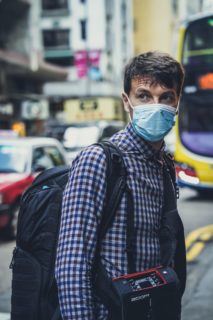
Photo by Free To Use Sounds on Unsplash
Not exactly. People may find themselves constantly adjusting their masks, touching their faces more often, and this may cause them to contaminate themselves by transferring the virus from their masks, onto their hands, and into their eyes, nose, or mouth (1).
That said, you can reduce your risk of self-contamination by not touching your face whilst wearing a face mask, frequently washing your hands, and knowing how to properly put on and remove your mask, without touching the front of it.
Myth #6: Masks can cause lung infections
There is currently no evidence that proves face masks can the wearer’s risk of developing pneumonia or other lung infections.
While the WHO does acknowledge that if a person wears the same mask for a long time, microorganisms may grow on the fabric, this can be avoided by washing the mask before its next use.
Myth #7: Masks can reduce oxygen intake and increase the risk of carbon dioxide poisoning
There is a fear that when exhaling into a face mask, one will inhale the circulating carbon dioxide increases the risk for hypercapnia, which is when a person has too much carbon dioxide in their blood. Symptoms include dizziness and headaches. However, you have nothing to worry about as most people only wear masks for a short period of time so it’s highly unlikely that you’ll be affected.
“The CO2 will slowly build up in the mask over time”, the CDC told Reuters, “However, the level of CO2 likely to build up in the mask is mostly tolerable to people exposed to it. You might get a headache, but you most likely [would] not suffer the symptoms observed at much higher levels of CO2. […] It is unlikely that wearing a mask will cause hypercapnia.”
For those worried about oxygen levels, they should remember that face masks are made of porous materials and this allows air to move freely. One should be able to breathe normally with a mask and not worry about the lack of oxygen.
Myth #8: Masks are dangerous for people with lung conditions (COPD, asthma)
While the WHO has acknowledged that people living with asthma and other chronic respiratory conditions may experience difficulties when wearing face masks, it’s advisable to consult with your health care provider before making a decision about wearing a mask.
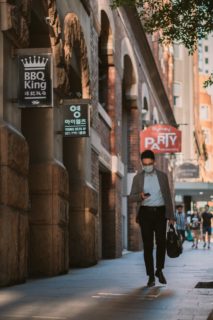
Photo by Kate Trifo on Unsplash
Myth #9: Face masks eliminate the need for social distancing
It’s not a toss-up between wearing a mask or practicing social distancing. If you want to protect your health, you need to do both. A study published in the Proceedings of the National Academy of Science found that it was the combination of social distancing and mask-wearing that helped to curb the rate of infections.
Face masks are not airtight, so there is still a risk of infection. This is why it’s important to adopt the 6-foot rule as this helps to offer additional protection.
Face masks are just one piece of the strategy for preventing the spread of the coronavirus, not the entire puzzle. In addition to mask-wearing, one should regularly practice social distancing, avoiding group gatherings, and sanitizing their hands.
Myth #10: I don’t need to wash my mask after each use
Masks collect germs, so it’s important that you wash them after each use. You’re welcome to throw them in with your usual laundry. You can do it by hand using a solution that consists of bleach and water. The CDC has detailed instructions on how to wash your face mask.
Myth #11: I don’t Have To Wear Face Masks At Home
It’s important to remember that face masks are used to help prevent the spread of COVID-19. Therefore, if you, or any other person in the home, have tested positive for COVID-19, it’s advisable to wear them inside. This will help to ensure that others within the home are protected.
Myth #12: I don’t need a mask if I’m not sick
According to findings published in the Annals of Internal Medicine, around 45% of COVID-19 infections are asymptomatic. You may look and feel perfectly healthy, but you could also be on your way to transmit the virus to unlucky shoppers in the supermarket.
Therefore, you should always wear a face mask so that you can protect yourself and others.
Myth #13: I don’t have to wear a mask if I’ve already had COVID-19
Unfortunately, this may not be true.
A recent study found that the antibody levels in some COVID-19 survivors dropped sharply after three months. While 60% of the patients had developed a strong antibody response while infected, only 17% retained it at the end of the testing period. This then suggests that people who recover from COVID-19 still face the risk of contracting the virus again.
Therefore, the importance of mask-wearing never fades.
The value of face masks is no myth
Yes, initially, the CDC advised against anyone wearing masks. However, following further research, it soon became clear that mask-wearing was a necessary step in the fight against COVID-19.
It’s important to be vigilant when it comes to protecting yourself. This includes social distancing, washing hands frequently, and most importantly wearing a face mask.
References
Chu, D. K., Akl, E. A., Duda, S., Solo, K., Yaacoub, S., Schünemann, H. J., … & Hajizadeh, A. (2020). Physical distancing, face masks, and eye protection to prevent person-to-person transmission of SARS-CoV-2 and COVID-19: a systematic review and meta-analysis. The Lancet. https://doi.org/10.1016/S0140-6736(20)31142-9
Ma, Q. X., Shan, H., Zhang, H. L., Li, G. M, Yang, R M, & Chen, J. M (2020). Potential utilities of mask‐wearing and instant hand hygiene for fighting SARS‐CoV‐2. Journal of medical virology. https://doi.org/10.1002/jmv.25805
Oran, D. P., & Topol, E. J. (2020). Prevalence of Asymptomatic SARS-CoV-2 Infection: A Narrative Review. Annals of Internal Medicine. https://doi.org/10.7326/M20-3012
Seow, J., Graham, C., Merrick, B., Acors, S, et al. (2020). Longitudinal evaluation and decline of antibody responses in SARS-CoV-2 infection. 10.1101/2020.07.09.20148429.
Wang, Y., Tian, H., Zhang, L., Zhang, M, Guo, D., Wu, W., … & Liu, B. (2020). Reduction of secondary transmission of SARS-CoV-2 in households by face mask use, disinfection and social distancing: a cohort study in Beijing, China. BMJ Global Health, 5(5), e002794. https://gh.bmj.com/content/5/5/e002794
Zhang, R., Li, Y., Zhang, A. L., Wang, Y., & Molina, M. J. (2020). Identifying airborne transmission as the dominant route for the spread of COVID-19. Proceedings of the National Academy of Sciences. https://doi.org/10.1073/pnas.2009637117


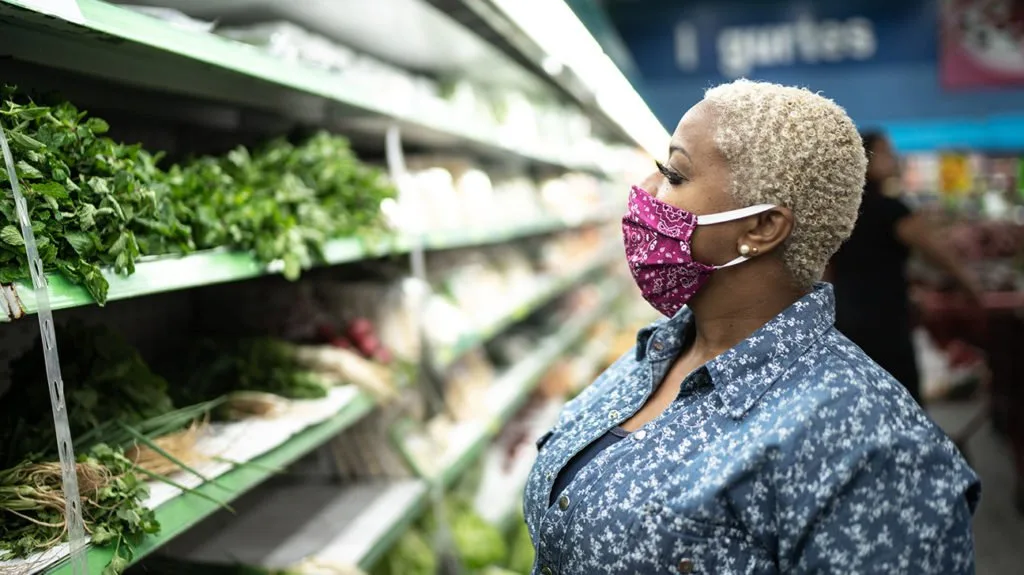
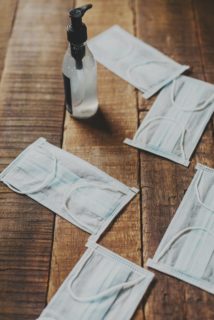
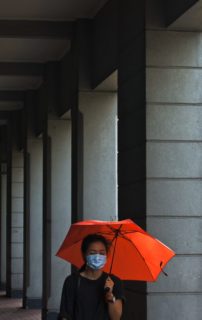


![women [longevity live]](https://longevitylive.com/wp-content/uploads/2020/01/photo-of-women-walking-down-the-street-1116984-100x100.jpg)










